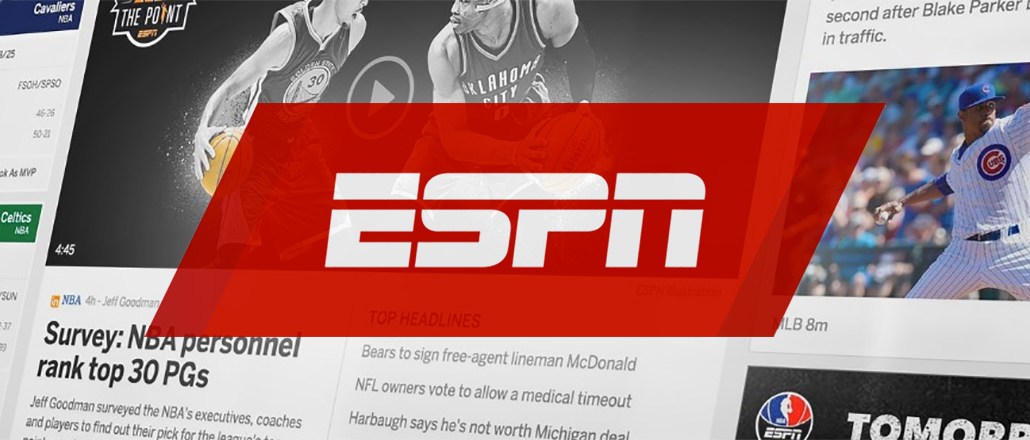Secure your place at the Digiday Media Buying Summit in Nashville, March 2-4

From paying celebs to post articles to experimenting with live stunts, some publishers are attempting to monetize their Facebook pages by any means possible.
ESPN, which has already pulled back from Instant Articles so it can monetize users on its own platforms, displays a play button in the thumbnail image for some of the static links it posts on Facebook. An analysis of ESPN’s Facebook page shows that from Nov. 6 to 8, ESPN posted 21 video links similar to the one shown below. The first word in the headline of these links was “WATCH” and 16 of these links (76 percent) featured a play button in the thumbnail, even though clicking on the play button doesn’t play the video on Facebook but rather drives users to ESPN’s website, where they are more easily monetized.
“I would advise against putting play buttons on thumbnail images,” said Maia McCann, editor-in-chief of viral-content site LittleThings. “It’s definitely against Facebook’s best practices. You run the risk of getting your hand slapped [by Facebook], and it’s definitely misleading to the user.”
In past years, some publishers who focused on creating viral content used dead play buttons in their thumbnails. But after Facebook changed their algorithm to crack down on the reach of misleading content, most publishers stopped featuring play buttons on static links, McCann said. ESPN and Facebook declined to comment.
“They set the rules within the platform, so it’s best for publishers to follow the rules rather than trying to trick the audience into clicking,” she said. “It’s not a good user experience. When you expect to see someone start talking, it’s frustrating to get redirected to another page that has all sorts of stuff on it that you weren’t expecting.”
Maycie Thornton, director of social media at BuzzFeed, added that “when people click on something, they want to get what they were expecting.” BuzzFeed has never used play buttons on static Facebook links, she said. “We want the user to have the best possible experience. So we focus solely on uploading video natively.”
Another thing that makes ESPN’s video links confusing is that they are interwoven between videos posted directly on Facebook that actually play when users click their play button. However, native videos, like the one below, are less common than linked videos. ESPN has posted only six videos directly to Facebook since Nov. 2.
“There are always questions when you are on Facebook of whether content will exist on or outside of Facebook,” said Jason Kint, CEO of Digital Content Next. Kint cited the larger problem of fake news traveling far and wide on Facebook, adding, “There is still a significant level of distrust and lack of understanding of what you’ll get on the platform.”
This post has been updated to clarify the context of Jason’s Kint’s quote.
More in Media

From feeds to streets: How mega influencer Haley Baylee is diversifying beyond platform algorithms
Kalil is partnering with LinkNYC to take her social media content into the real world and the streets of NYC.

‘A brand trip’: How the creator economy showed up at this year’s Super Bowl
Super Bowl 2026 had more on-the-ground brand activations and creator participation than ever, showcasing how it’s become a massive IRL moment for the creator economy.

Media Briefing: Turning scraped content into paid assets — Amazon and Microsoft build AI marketplaces
Amazon plans an AI content marketplace to join Microsoft’s efforts and pay publishers — but it relies on AI com stop scraping for free.





